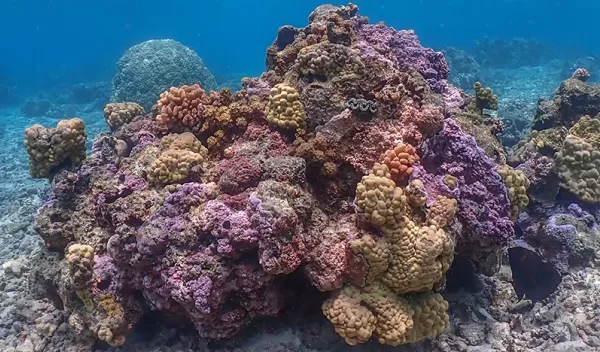
Trouble dead ahead: Acidifying oceans harm tropical corals
The French Polynesian island Moorea is the most beautiful isle in the world, some say. Its lagoons are surrounded by reefs dominated by Porites corals.
These corals and other calcifying marine species are the world's primary reef-builders. Therein lies the trouble. The seas in which they dwell are turning acidic, a result of rising atmospheric carbon dioxide (CO2). Marine life that depends on calcium carbonate struggles to form shells or, in the case of coral reefs, skeletons.
Porites reefs, say scientists Peter Edmunds and Robert Carpenter of California State University at Northridge, are among the most sensitive of all corals. Edmunds, Carpenter and Steve Doo of the University of Hawaii published results in the journal Limnology and Oceanography revealing the consequences of ocean acidification. The reefs may not be able to grow and reproduce.
Edmunds and Carpenter are two of the lead scientists at the U.S. National Science Foundation-supported Moorea Coral Reef Long-Term Ecological Research (LTER) site.
"Unless measures are taken to slow the process of acidification, we are likely to lose these important reefs within a few generations," says Daniel Thornhill, a program director in the NSF Division of Ocean Sciences.
"Our experiments provide little optimism that coral reefs can somehow 'adjust,'" adds Edmunds.
If the trend continues, trouble is dead ahead for coral reefs in Moorea and around the globe.
